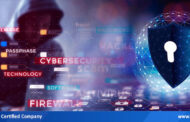The gaming industry has been a source of entertainment for millions of video game aficionados. And with the advent of the internet, the world moved on from battling it offline to engaging gamers online from across the world. This has created what we now know as the online gaming ecosystem. Although, with the amount of popularity it garnered, hackers found online gaming to be a lucrative target. Although, playing it safe over the internet is just not the responsibility of gamers but also of every other entity that constitutes the online gaming ecosystem.
Arguably, since most of the online gaming companies tend to use low friction authentication to promote usability, the gaming industry has fast become a lucrative target for cybercriminals. Among some other factors contributing to the industry being in the crosshairs of cybercriminals, is the gamer’s inability of using secure passwords as they perceive a breach of their gaming account to be a low-risk situation. There is also a considerable boom in single sign-in authentication, which would mean that hacking other accounts that are linked to the gaming account could suffice as an entry into the online gaming account itself. One other notable fact is that the majority of the online gaming crowd consists of children, who lack the awareness of cybersecurity and the implications of a security breach.
Hacking gaming accounts would mean gaining virtual currency, that would fetch high prices in the real world. Losing a data cache that could expose details such as the user’s location, engagement and a few other details are of real concern. Hence, both gamers and the organizations developing these games should shift their perspective to view data breaches as dangerous and potential threats, which needs to be mitigated.
What steps can gamers do to play it safe?
Although the responsibility for securing gaming platforms lies with the organizations developing the games, there are a few measures that gamers can take to secure themselves and their data.
- If available, turn on multi-factor authentication and use strong and unique passwords for all gaming accounts.
- Throw caution to the wind when it comes to dealing with possible phishing accounts. This included emails claiming to offer users in-game rewards or real-life money.
- Make sure that your system has a trusted antivirus like eScan’s Internet Security Suite.
What can gaming companies do to help?
It has become highly essential to find a way to improve security with online gaming with various kinds of cyber threats looming in the dark.
- Create awareness about security threats among the users and share tips on how to secure their data while using the game.
- Adhere to standard practices when storing users’ in-game financial and personal data.
- They should also explore features that indulge in behavioral biometrics that can add an extra layer of security for the users.
With precautionary measures being observed from both sides of the gaming ecosystem, cybercriminals would find it hard to breach the ecosystem and use its rewards for their own benefits.
To read more, please check eScan Blog







